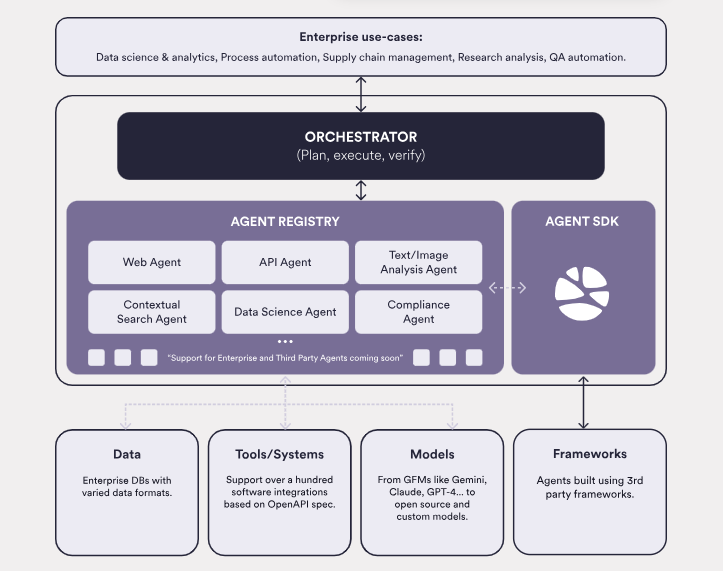 AI
AI
 AI
AI
 AI
AI
Emergence AI is emerging from the shadows with a fresh take on artificial intelligence agents, using them to create yet more agents that can perform more complicated tasks on behalf of workers.
The startup today announced the launch of a new, automated AI agent creation platform that doesn’t require any coding skills. Instead, human users can simply tell it what they’re trying to accomplish using natural language prompts. The platform will then fire up its AI agents, which will then set about creating more specialized AI agents to complete the designated task.
Emergence AI’s new agent builder was first reported by VentureBeat, which describes the system as a “no code, natural language, AI-powered multi-agent builder” that works in real time. According to the startup, its platform represents a new milestone in the area of “recursive intelligence,” which refers to AI systems that can improve themselves over time without human intervention.
According to co-founder and Chief Executive Satya Nitta, recursive intelligence is the secret sauce that makes it possible for AI agents to create new AI agents. “Our systems allow creativity and intelligence to scale fluidly without human bottlenecks, but always within human-defined boundaries,” he told VentureBeat.
When it’s presented with an incoming task, Emergence AI will evaluate the work that needs to be performed and then check its existing registry of AI agents to see if they are capable of doing that work. If not, it will then set about autonomously creating new agents that can fulfil the requested task, and those newly built agents will get to work on the problem straight away.
Taking it further, Emergence AI can also proactively create additional AI agents that will anticipate related tasks that need to be fulfilled, based on the user’s previous requests.
“The orchestrator figures out if it can solve the task by checking the registry of existing agents,” Nitta said. “If it can’t, it creates a new agent and registers it.”

The platform is also able to stitch together multiple AI agents and have them work with one another in a fully autonomous way, enabling a new level of enterprise automation, the company claims.
With regard to the underlying large language models that power Emergence AI’s agents, Nitta said customers can choose from leading LLMs including OpenAI’s GPT-4o reasoning model or GPT-4.5, Anthropic PBC’s Claude 3.7 Sonnet, Meta Platforms Inc.’s Llama 3.3 and many more. He added that the company has put a lot of emphasis on interoperability, so enterprises can also bring their own models and use them to power the AI agents its platform creates.
The startup is targeting a wide range of use cases for its Ai agents, including data-centric tasks such as extract, transact and load pipeline creation, transformation, migration and analytics. In addition, it’s also hoping to improve generative AI coding, which is an area where mistakes are still often made. According to Nitta, the idea is to marry LLM’s code generating capabilities with autonomous agents that can verify the code they generate, and then suggest fixes if any problems show up.
“Agentic coding has enormous implications and will be the story of the next year and the next several years,” Nitta said.
Emergence AI has implemented a number of safeguards and compliance features in place to maintain oversight of its AI agents. These include general safety guardrails to prevent agents from misbehaving, access controls and verification rubrics that assess the performance of its agents. Most importantly, though, there’s always a human in the loop, Nitta said.
“You need to verify that the multi-agent system or the new agents spawned are doing the task you want and went in the right direction,” he pointed out.
The startup has not disclosed pricing for its AI agent-powered AI agent platform, but anyone who is interested in the concept is invited to contact the company directly for details on access and costs.
Support our mission to keep content open and free by engaging with theCUBE community. Join theCUBE’s Alumni Trust Network, where technology leaders connect, share intelligence and create opportunities.
Founded by tech visionaries John Furrier and Dave Vellante, SiliconANGLE Media has built a dynamic ecosystem of industry-leading digital media brands that reach 15+ million elite tech professionals. Our new proprietary theCUBE AI Video Cloud is breaking ground in audience interaction, leveraging theCUBEai.com neural network to help technology companies make data-driven decisions and stay at the forefront of industry conversations.